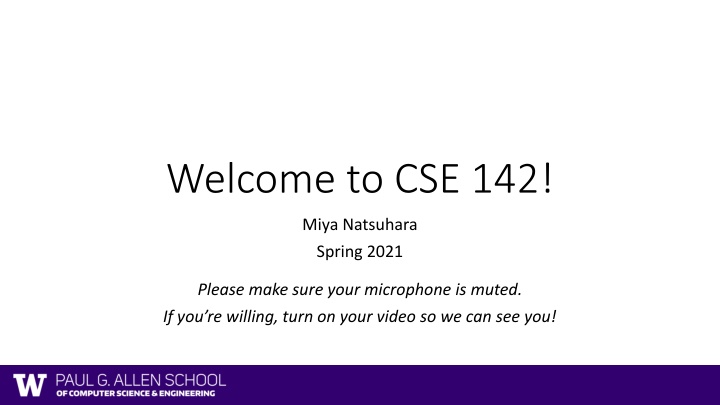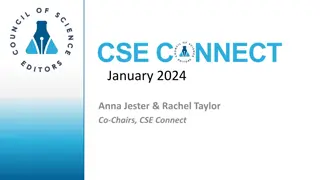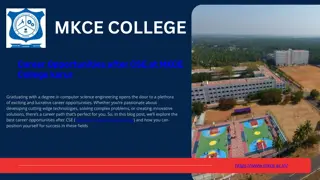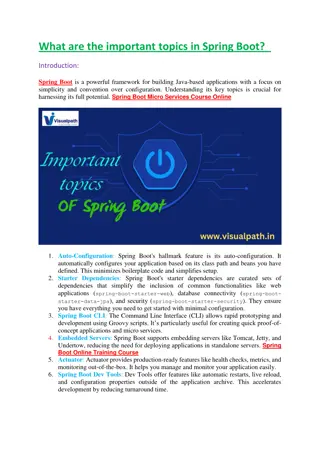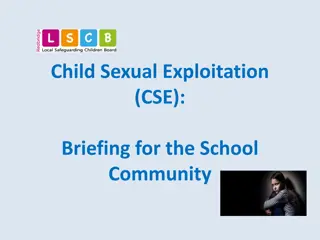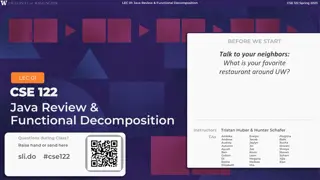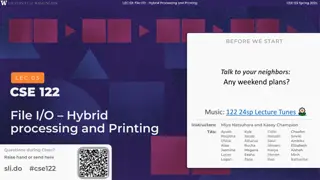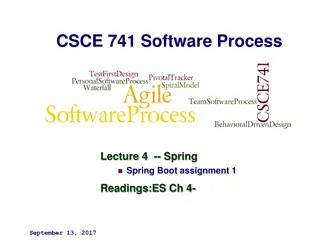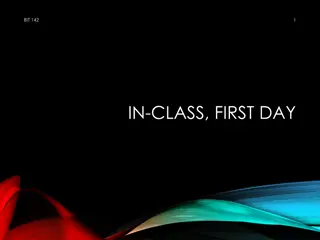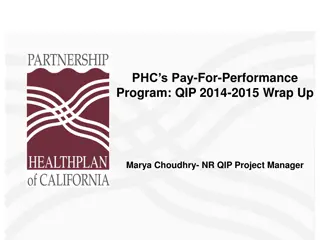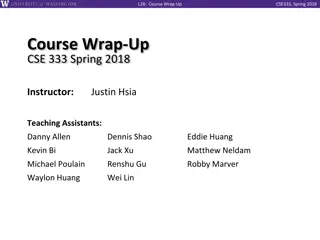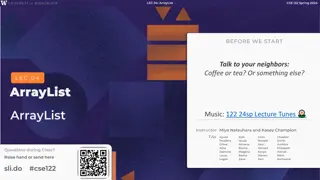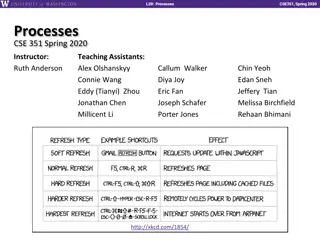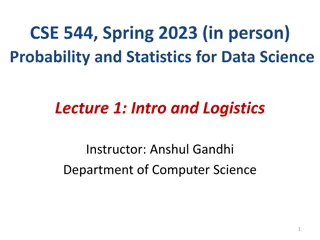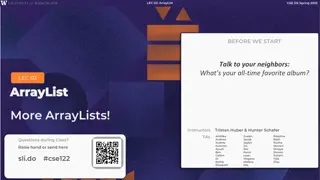CSE 142 Spring 2021 Wrap-Up Summary and Learning Objectives
This summary covers the essential aspects of the CSE 142 course in Spring 2021. It includes learning objectives such as writing Java programs, functional decomposition, control structures, data abstraction, and code quality. Additionally, it outlines topics like methods, loops, conditionals, file I/O, arrays, classes, and inheritance. The content also delves into underlying skills like computational thinking, testing, and debugging in computer science. Moreover, it discusses the applications of CS in real-world scenarios like toxicity detection online, sound identification for hearing-impaired individuals, disinformation recognition, digital collaboration enhancement, and more.
Download Presentation

Please find below an Image/Link to download the presentation.
The content on the website is provided AS IS for your information and personal use only. It may not be sold, licensed, or shared on other websites without obtaining consent from the author.If you encounter any issues during the download, it is possible that the publisher has removed the file from their server.
You are allowed to download the files provided on this website for personal or commercial use, subject to the condition that they are used lawfully. All files are the property of their respective owners.
The content on the website is provided AS IS for your information and personal use only. It may not be sold, licensed, or shared on other websites without obtaining consent from the author.
E N D
Presentation Transcript
Welcome to CSE 142! Miya Natsuhara Spring 2021 Please make sure your microphone is muted. If you re willing, turn on your video so we can see you!
You Made It! Wrap-Up - Spring 2021 2
Thank your TAs!! 3 Wrap-Up - Spring 2021
Learning Objectives or What will didI learn in this class? Functionality/Behavior: Write functionally correct Java programs that meet a provided specification and/or solve a specified problem Functional Decomposition: Break down problems into subproblems that are modular and reusable, and define methods to represent those subproblems Control Structures: Select and apply control structures (e.g. methods, loops, conditionals) to manage the flow of control and information in programs Data Abstraction: Select and apply basic data abstractions (e.g. variables, parameters, arrays, classes) to manage and manipulate data in programs Code Quality: Define programs that are well-written, readable, maintainable, and conform to established standards Wrap-Up - Spring 2021 4
(Partial) Topic List or another view on What did I learn in this class? Methods Parameters Return Values Variables Types Loops (for and while) Conditionals Console (User) I/O File I/O Arrays Classes Inheritance ArrayList Wrap-Up - Spring 2021 5
Underlying Skills or What did I learn in this class without realizing it? Computational thinking: breaking problems down into smaller, well- defined steps that can be recombined Thinking like a computer (Also called algorithmic thinking) Testing: determining whether or not a program works as expected Requires really knowing what as expected means Debugging: finding and fixing errors in existing code Often just as hard (or harder!) than writing the code in the first place Wrap-Up - Spring 2021 6
Learning in CSE 142 (or anywhere) Wrap-Up - Spring 2021 7
Applications of CS or What can I do with what I learned? Detect and prevent toxicity online Digitize basketball players Help DHH people identify sounds Figure out how to best distribute relief funds Recognize disinformation online Make movies Improve digital collaboration Fix Olympic badminton And so much more! Wrap-Up - Spring 2021 8
Future Courses or What can I do next? Course Overview CSE 143 * + Intermediate programming with data structures (Java) CSE 154 * + Introduction to web programming (several languages) CSE 160 + Introduction to programming for data analysis (Python) CSE 163 * + Intermediate programming for data analysis (Python) CSE 180 Introduction to data science (Python) * Offered in Summer 2021 + Offered in Autumn 2021 See also: https://www.cs.washington.edu/academics/ugrad/nonmajor-options/intro-courses Wrap-Up - Spring 2021 9
Frequently Asked Questions How can I get better at programming? Practice! How can I learn to X? Search online, read books, look at examples What should I work on next? Anything you can think of! (Here are some ideas) Beware: it s hard to tell what s easy and what s hard. Should I learn another language? Which one? That depends what do you want to do? What s the best programming language? (take CSE 341) Wrap-Up - Spring 2021 10
Thank you!!! Wrap-Up - Spring 2021 11
